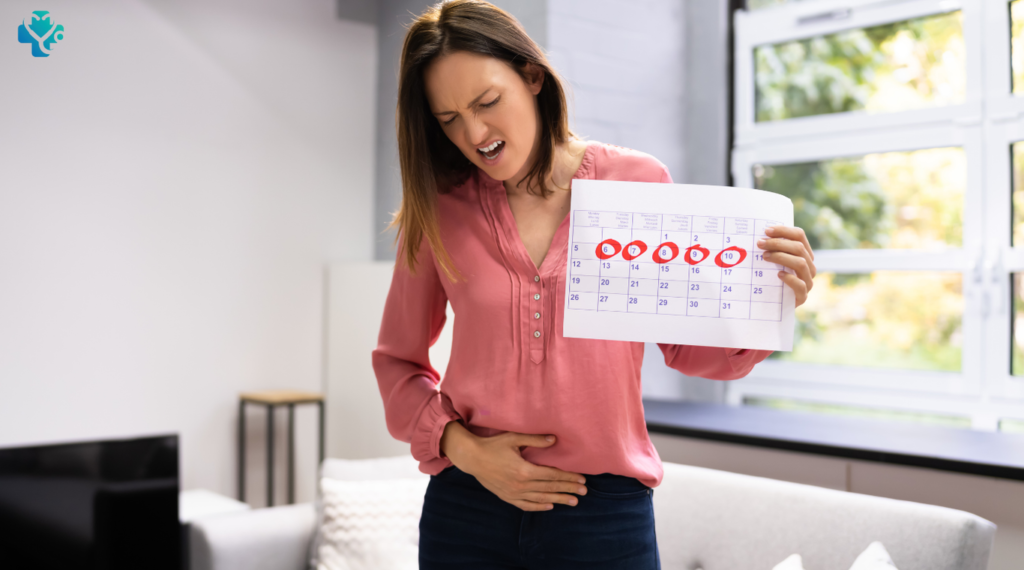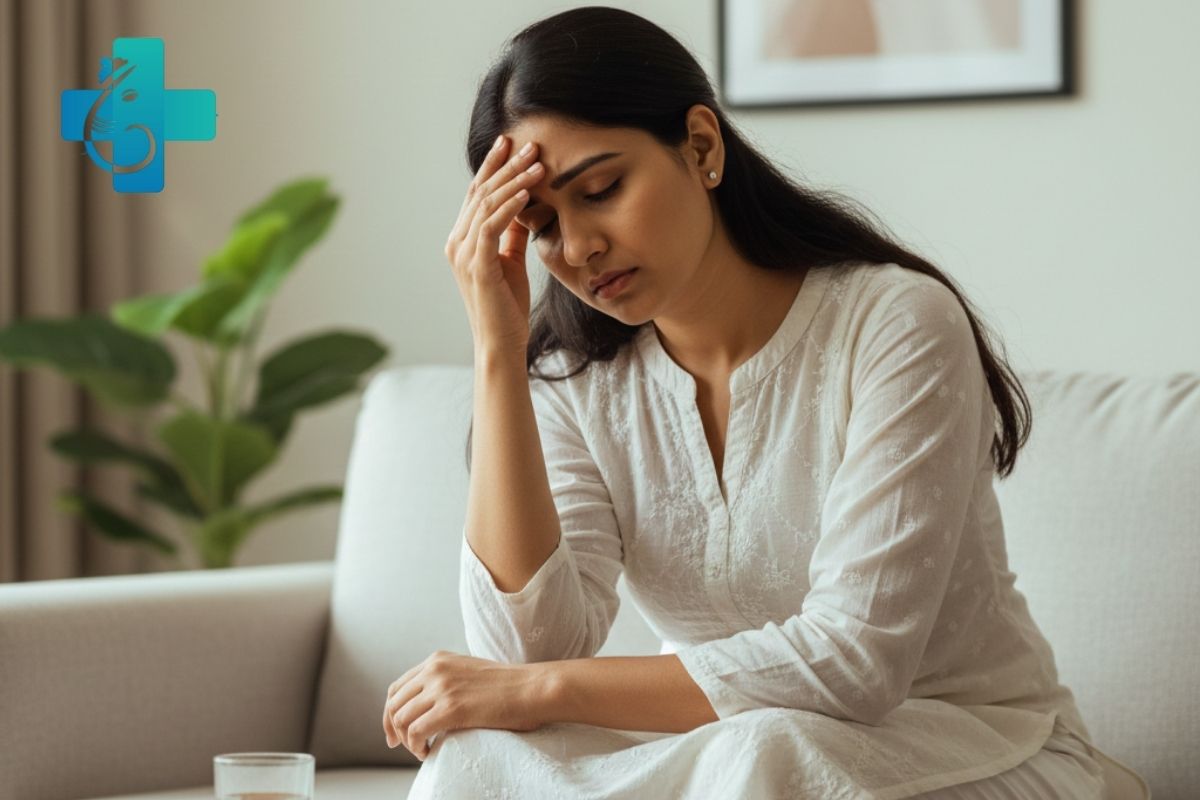
Endometriosis is a complex and often misunderstood condition that affects millions of individuals worldwide. It primarily impacts the female reproductive system and is a common cause of irregular periods. Despite its prevalence, it is often underdiagnosed, leaving many women struggling with symptoms without a clear explanation or treatment plan. This blog explores the connection between endometriosis and irregular periods, diving into the symptoms, diagnosis, and treatment options available.
What is Endometriosis?
Endometriosis occurs when tissue similar to the uterine lining grows outside the uterus, often on the ovaries, fallopian tubes, or other pelvic organs. This misplaced tissue responds to hormonal changes during the menstrual cycle, causing inflammation, pain, and scarring.
While the exact cause of endometriosis remains unknown, genetic, hormonal, and environmental factors are believed to contribute to its development. The condition can manifest in various ways, making it challenging to diagnose and manage.
Symptoms of Endometriosis and Irregular Periods
One of the hallmark signs of endometriosis is menstrual irregularity. However, the condition also presents with a range of other symptoms that may vary in severity:
- Irregular Periods: Endometriosis can disrupt the normal menstrual cycle, causing periods that are unpredictable in timing, duration, and intensity. Some women experience shorter cycles, while others may face prolonged bleeding.
- Chronic Pelvic Pain: Pain in the pelvic region, especially before and during menstruation, is a common complaint. This discomfort may also radiate to the lower back or legs.
- Heavy Menstrual Bleeding (Menorrhagia): Many women with endometriosis report unusually heavy periods, often accompanied by blood clots.
- Pain During Intercourse (Dyspareunia): Sexual activity may become painful due to the presence of endometrial tissue outside the uterus.
- Other Symptoms: Fatigue, bloating, digestive issues, and infertility are additional signs that may suggest endometriosis.
Diagnosing Endometriosis
Timely and accurate diagnosis is crucial for managing endometriosis effectively. Unfortunately, the condition is often misdiagnosed as other disorders, leading to delays in treatment.
- Medical History and Physical Examination: A detailed discussion about symptoms and a pelvic exam can provide the first clues for a potential diagnosis.
- Imaging Tests: Ultrasounds and MRI scans are commonly used to detect endometrial cysts or lesions, though they may not reveal all forms of the condition.
- Laparoscopy: The gold standard for diagnosing endometriosis is laparoscopy, a minimally invasive surgical procedure that allows a doctor to view and biopsy the endometrial growths directly.
Causes of Irregular Periods Linked to Endometriosis

Irregular periods are a major concern for individuals with endometriosis. The underlying reasons include:
- Hormonal Imbalances: Endometriosis can disrupt the balance of estrogen and progesterone, leading to erratic menstrual cycles.
- Inflammation: Chronic inflammation caused by the misplaced tissue can interfere with normal uterine function.
- Scar Tissue and Adhesions: These can distort the reproductive organs, impacting the regularity of the menstrual cycle.
Treatment Options: Finding Relief
While there is currently no cure for endometriosis, several treatments can alleviate symptoms and improve quality of life.
- Medical Management:
- Hormonal Therapy: Birth control pills, IUDs, and other hormonal medications can help regulate cycles and reduce symptoms.
- Pain Relievers: Over-the-counter or prescription medications can address mild to moderate pain.
- Surgical Interventions: Laparoscopic surgery may be performed to remove endometrial lesions and scar tissue, providing significant symptom relief for some individuals.
- Lifestyle Changes and Remedies:
- Dietary Adjustments: Incorporating anti-inflammatory foods, such as leafy greens and omega-3-rich fish, can help reduce inflammation.
- Exercise: Regular physical activity can relieve pain and improve overall well-being.
- Stress Management: Practices like yoga, meditation, and deep breathing exercises can help manage stress, which often exacerbates symptoms.
- Fertility Treatments: For those facing infertility due to endometriosis, treatments like in vitro fertilisation (IVF) may offer hope.
Remedies for Irregular Periods
In addition to addressing endometriosis itself, managing irregular periods is a key part of treatment:
- Tracking Cycles: Using apps or journals to monitor symptoms and cycle patterns can help identify irregularities.
- Natural Supplements: Some women find relief with supplements like magnesium, vitamin D, or evening primrose oil (consult a healthcare provider first).
- Adequate Rest: Prioritizing sleep and maintaining a consistent schedule can positively impact hormonal health.
If you experience persistent pelvic pain, irregular periods, or other symptoms associated with endometriosis, it’s important to consult a healthcare provider. Early diagnosis and treatment can prevent complications and improve your quality of life.
Conclusion
Endometriosis and irregular periods are deeply interconnected, affecting physical health and emotional and mental well-being. While the journey to diagnosis and effective management may be challenging, understanding the symptoms and exploring available treatments can empower individuals to take control of their health.
Whether you’re dealing with pain, irregular cycles, or other symptoms, remember that support is available. With the right combination of medical care, lifestyle adjustments, and self-awareness, it is possible to lead a fulfilling life despite endometriosis.
For expert advice and treatment options related to endometriosis and irregular periods, consult Dr Swati Gupta, a leading gynaecologist in Tohana, who is committed to providing personalised care to improve women’s health.



